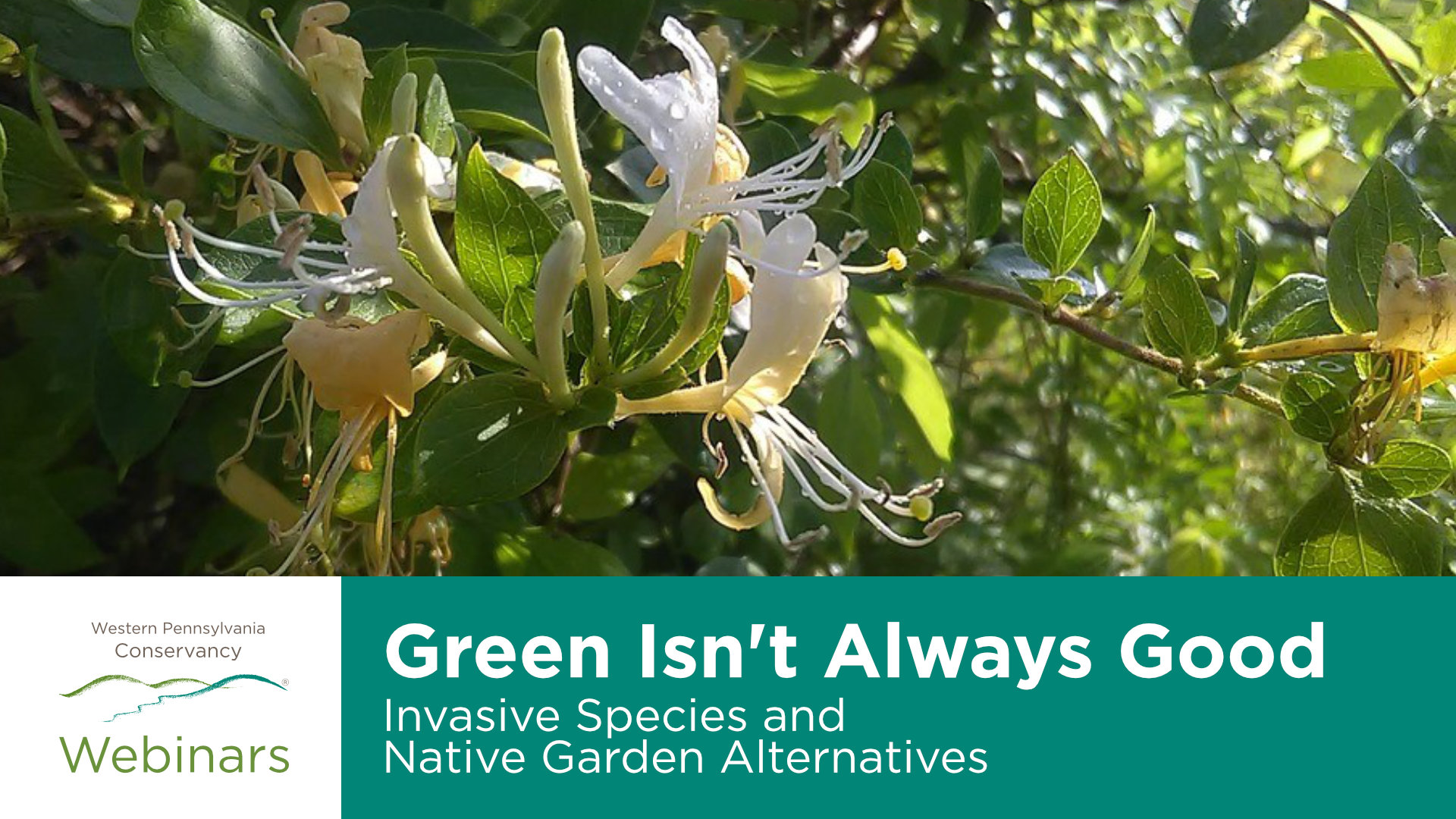
Invasive plant species such as purple loosestrife, callery pear, English ivy and bush honeysuckle have become more common across Western Pennsylvania’s landscape in our gardens and woodlands.
These quick growing invaders crowd out native plants and shrubs, resulting in diminished food sources and habitat for native plants, insects, and wildlife. Unknowingly, some gardeners may amplify this threat by planting these aggressive ornamentals that then escape into natural environments, depleting these important areas of native habitats. A variety of insects rely on native plants to survive because they have co-evolved over thousands of years to only eat certain vegetation native to our region. Additionally, native bees and honey bees, important for pollination of many pants and crops, also need native habitats to survive. So, green plant life isn’t always good.
In this webinar, you’ll discover more about native plant species that have been growing in our region for centuries. These include button bush, wild ginger, Eastern redbud tree and butterfly milkweed, all of which benefit native insects and wildlife and can be planted by home gardeners and conservation professionals alike.
Join WPC staff, Aquatic Zoology Coordinator Mary Walsh, Invasive Species Coordinator Amy Jewitt, and Volunteer Coordinator and Fallingwater Horticulturist Ann Talarek, as they discuss the issues surrounding invasive plants in our natural world and ways WPC’s science and professional staff work to control and track them. They’ll also share and suggest beautiful and beneficial native plants that can be used by gardeners as alternatives to some of the region’s most common invaders.
About the Presenters
Amy Jewitt, Invasive Species Coordinator for WPC and PA Natural Heritage Program
Amy has a combined 12 years of professional experience working with invasive species eradication programs and tracking invasive species locations and management efforts. Amy holds a bachelor’s degree in agricultural science from Penn State University with minors in horticulture, international agriculture and leadership development.
Mary Walsh, Aquatic Zoology Coordinator for WPC and PA Natural Heritage Program
Mary has worked at WPC for nearly two decades on aquatic ecology projects and invasive species management and tracking. She will discuss efforts to remove invasive species at WPC’s properties and through the Lake Erie Watershed Cooperative Weed Management Area.
